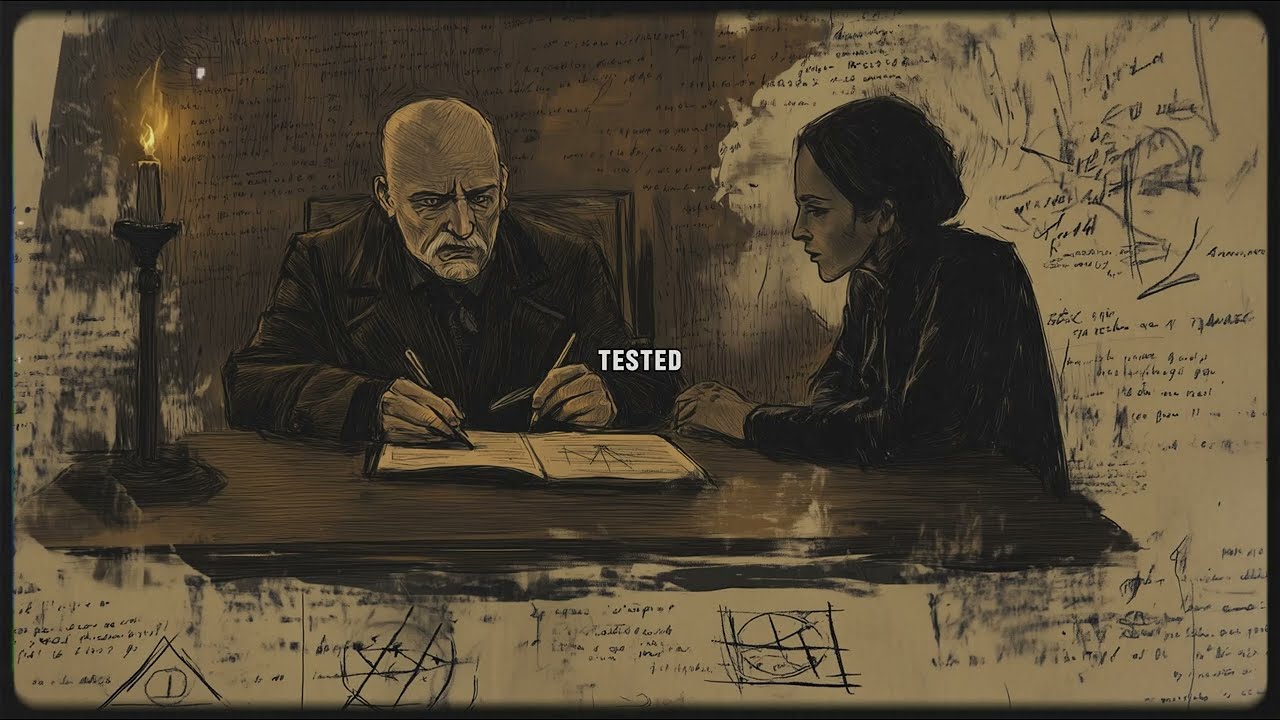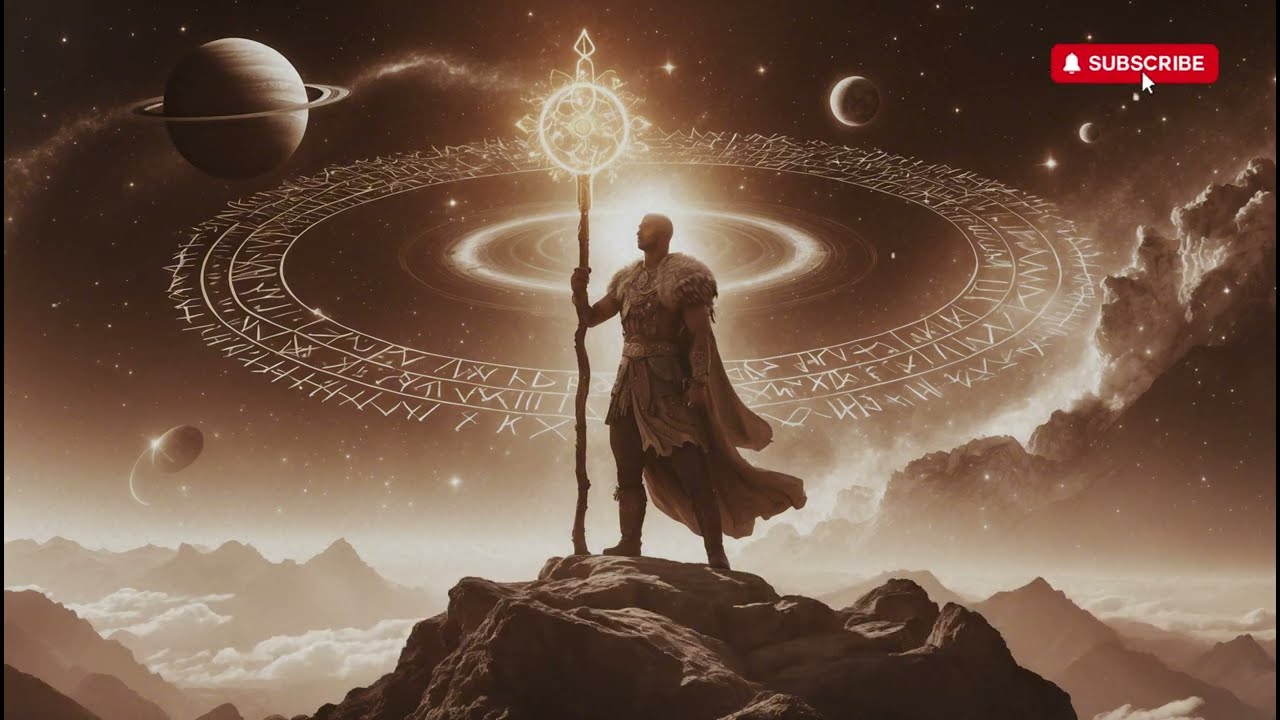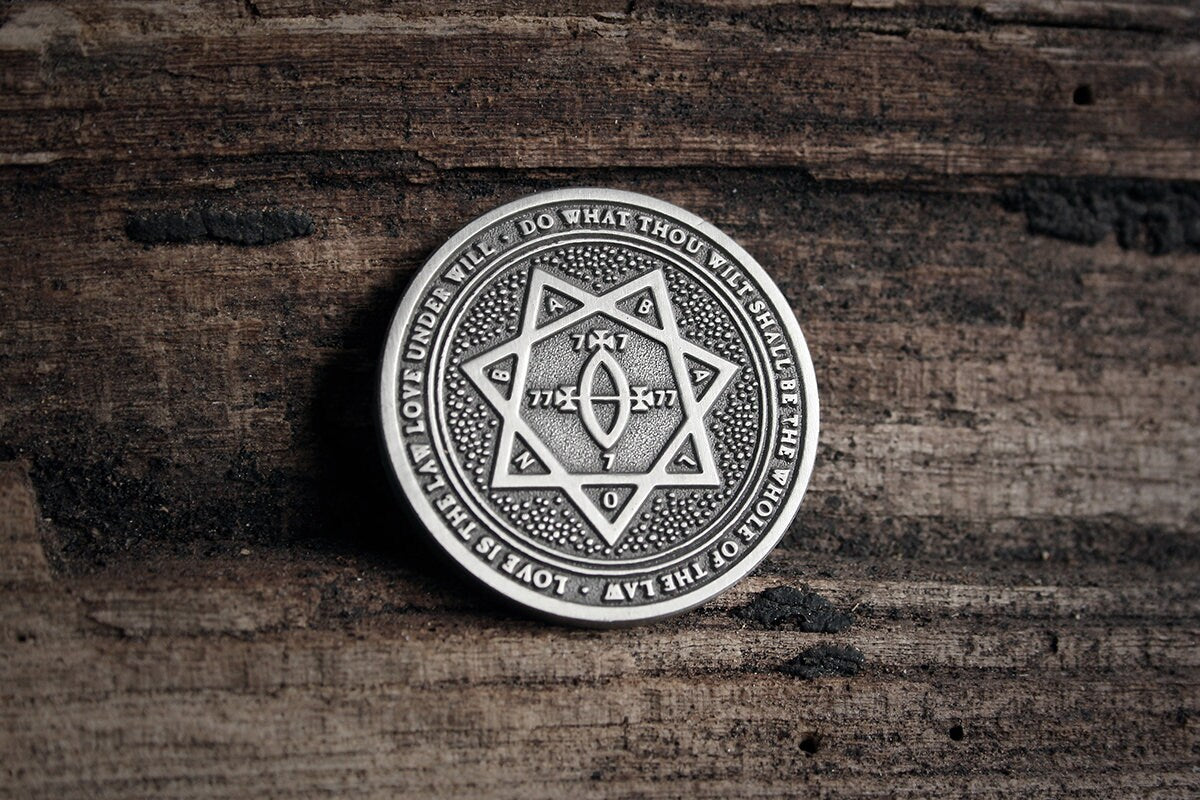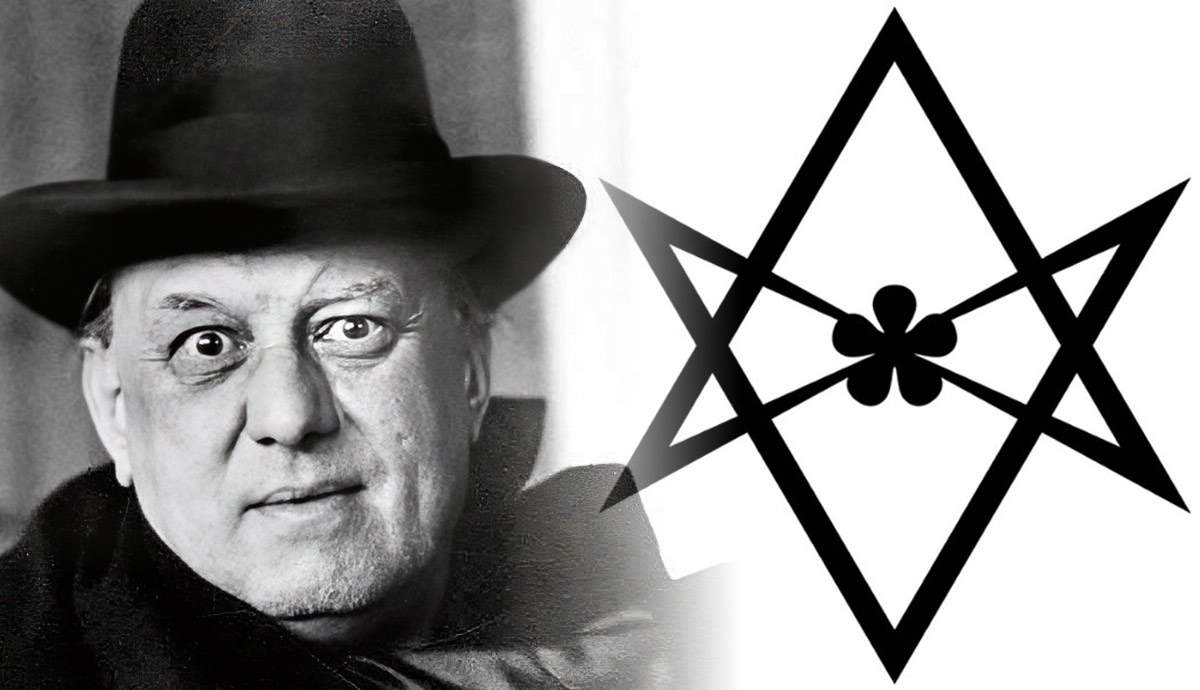What really is the Law of Thelema? This central tenet, famously declared by Aleister Crowley as “Do what thou wilt shall be the whole of the Law,” represents a profound spiritual and philosophical system that challenges conventional morality and encourages personal liberation. Originating from early 20th-century occultism, the Law of Thelema has influenced various aspects of culture, religion, and individual self-discovery. In this article, we delve deeply into its essence, exploring its historical foundations, core principles, practical implications, and common misconceptions to provide a comprehensive understanding.
Historical Origins of the Law of Thelema

The Law of Thelema did not emerge in a vacuum; it is deeply rooted in the mystical and esoteric traditions of the late 19th and early 20th centuries. This philosophy was born from a blend of Western occultism, Eastern spirituality, and Crowley’s personal experiences, marking a significant shift in how individuals approach spirituality and personal freedom. By examining its historical context, we can see how the Law of Thelema evolved from a personal revelation into a global movement, influencing countless seekers of truth.
The Life and Works of Aleister Crowley

Aleister Crowley, often dubbed “the wickedest man in the world” by sensationalist media, was a complex figure whose life was a tapestry of adventure, controversy, and spiritual exploration. Born in 1875 in England to a devout Christian family, Crowley rebelled against the strict religious upbringing that stifled his curiosity. He became deeply involved in the Hermetic Order of the Golden Dawn, a secret society dedicated to the study of magic and mysticism, where he honed his skills in ritual magic and esoteric philosophy.
Crowley’s journey took him across the globe, from climbing mountains in Asia to engaging in tantric practices in India and Ceylon. These experiences shaped his worldview, leading him to develop a system that synthesized various spiritual traditions. In 1904, while on honeymoon in Cairo, Crowley claimed to have received a series of revelations from a supernatural entity named Aiwass, which resulted in the writing of The Book of the Law. This text became the cornerstone of Thelema, introducing the Law as a directive for human conduct based on true will.
The Law of Thelema, as articulated through Crowley’s works, emphasizes the idea that each individual has a unique purpose or “True Will” that must be discovered and followed. Crowley’s prolific writings, including books like Magick in Theory and Practice and The Equinox, expanded on this concept, blending elements of yoga, qabalah, and ceremonial magic. His life was marked by scandal, including accusations of immorality and involvement in secret societies, but these controversies often overshadowed his genuine contributions to spiritual thought. By understanding Crowley’s biography, we see that the Law of Thelema is not just a set of rules but a dynamic philosophy born from a restless quest for enlightenment.
The Reception of The Book of the Law

When The Book of the Law was first published in 1909, it met with a mix of fascination and outrage, reflecting the polarized views of its content. The book presents itself as a divine dictation, with Crowley acting as a scribe for Aiwass, and it introduces key Thelemic concepts such as the Aeon of Horus, symbolizing a new era of human evolution. This reception was influenced by the broader cultural shifts of the time, including the decline of Victorian morality and the rise of modernism.
In the early 20th century, occult circles were abuzz with discussions about Crowley’s claims. Some saw The Book of the Law as a revolutionary manifesto for personal freedom, while others dismissed it as the ramblings of a charlatan. The text’s assertion that “Every man and every woman is a star” challenged traditional religious hierarchies, promoting the idea that divinity resides within each individual. This led to both admiration and criticism, with figures like W.B. Yeats and Arthur Edward Waite offering mixed reviews within the Golden Dawn.
Over time, the reception evolved, especially after Crowley’s death in 1947, when Thelema gained a foothold in countercultural movements. The 1960s saw a resurgence of interest, with hippies and spiritual seekers embracing the Law of Thelema as a call for liberation. Today, it continues to be studied and practiced by various groups, underscoring its enduring impact. The reception history highlights how the Law of Thelema has been both a catalyst for change and a source of contention, illustrating its role in challenging societal norms.
Evolution of Thelemic Ideas in Society
The ideas of Thelema have undergone significant evolution since their inception, adapting to changing social and cultural landscapes. Initially confined to small occult circles, Thelemic principles began to spread through Crowley’s writings and the establishment of organizations like the A∴A∴ and Ordo Templi Orientis (O.T.O.), which promoted the Law as a path to spiritual enlightenment.
As the 20th century progressed, Thelema influenced broader intellectual currents, including existentialism and humanism, by emphasizing individual agency and the rejection of dogmatic authority. During the World Wars, some interpreted the Law as a call for personal resilience in the face of chaos, while in the post-war era, it resonated with the Beat Generation and later the New Age movement. This evolution was not without internal debates, as different interpreters emphasized aspects like magic, ethics, or social reform.
In contemporary times, Thelemic ideas have found expression in diverse areas, from art and literature to psychology and self-help. Modern Thelemites often integrate the Law with scientific advancements and
Evolution of Thelemic Ideas in Society

The ideas of Thelema have undergone significant evolution since their inception, adapting to changing social and cultural landscapes. Initially confined to small occult circles, Thelemic principles began to spread through Crowley’s writings and the establishment of organizations like the A∴A∴ and Ordo Templi Orientis (O.T.O.), which promoted the Law as a path to spiritual enlightenment.
As the 20th century progressed, Thelema influenced broader intellectual currents, including existentialism and humanism, by emphasizing individual agency and the rejection of dogmatic authority. During the World Wars, some interpreted the Law as a call for personal resilience in the face of chaos, while in the post-war era, it resonated with the Beat Generation and later the New Age movement. This evolution was not without internal debates, as different interpreters emphasized aspects like magic, ethics, or social reform.
In contemporary times, Thelemic ideas have found expression in diverse areas, from art and literature to psychology and self-help. Modern Thelemites often integrate the Law with scientific advancements and philosophical discourse, illustrating its adaptability and relevance in the present day.
The Impact of Thelema on Counterculture Movements
The emergence of Thelema coincided with various counterculture movements that sought to challenge established norms and promote radical forms of self-expression. In the early 20th century, as society grappled with the aftermath of World War I and the disillusionment of traditional values, Thelema provided a framework for individuals seeking autonomy.
The Beat Generation, which blossomed in the 1950s, embraced Thelema as part of a broader reaction against materialism and conformity. Writers like Jack Kerouac and Allen Ginsberg explored themes of personal freedom and artistic authenticity that resonated deeply with Thelemic principles. They saw the exploration of one’s “True Will” as not just a personal journey, but as a collective rebellion against societal constraints.
Later, during the 1960s, Thelema significantly influenced the emerging hippie movement. The mantra of “Do what thou wilt shall be the whole of the Law” served as an anthem for those yearning for liberation, experimentation, and the exploration of consciousness. The focus on personal experience, love, and psychedelic exploration echoed Crowley’s teachings, leading to a resurgence of interest in his works and philosophy. This intertwining of Thelema with counterculture reflects how the philosophy has continually inspired seekers of truth and transformation.
The Influence of Thelema on Modern Spirituality
In today’s diverse spiritual landscape, Thelema holds a unique position among various new age philosophies and practices. The emphasis on personal empowerment and the quest for individual truth resonates with contemporary seekers who prioritize self-discovery over institutionalized religion. Thelema’s approach encourages practitioners to explore spirituality through direct experience rather than adherence to dogma.
This shift is evident in the rise of spiritual communities that incorporate Thelemic principles into their practices. Workshops, retreats, and online forums dedicated to Thelema provide spaces for individuals to delve into ritual magic, meditation, and personal growth. These gatherings foster a sense of belonging among like-minded individuals, allowing them to share insights and experiences related to the Law of Thelema.
Moreover, modern psychological frameworks, such as transpersonal psychology, find synergy with Thelemic ideas. Concepts like self-actualization and peak experiences align with Crowley’s notion of discovering one’s True Will. Practitioners often draw parallels between Thelema and contemporary self-help philosophies, highlighting the enduring relevance of Crowley’s work in facilitating personal transformation.
The Role of Technology in Thelemic Practice
As technology continues to shape society, its impact on Thelemic practice cannot be overlooked. Digital platforms have made Thelema more accessible, allowing individuals worldwide to engage with Crowley’s teachings and connect with fellow practitioners. Online courses, eBooks, and podcasts about Thelema and its applications proliferate, democratizing spiritual knowledge.
Social media plays a crucial role in fostering Thelemic communities. Platforms like Facebook and Instagram allow members to share insights, rituals, and personal anecdotes, creating a vibrant online culture centered around Thelema. This exchange of ideas can lead to reinterpretations and adaptations of traditional practices, ensuring that Thelema remains dynamic and relevant.
Furthermore, technological advancements in virtual reality and augmented reality open new avenues for immersive spiritual experiences. Thelemites are beginning to explore the potential of these technologies for enhancing ritual practices, enabling participants to engage with complex symbols and archetypes in innovative ways. The fusion of technology with Thelema illustrates the ongoing evolution of this philosophy, demonstrating its ability to adapt to the modern world while retaining its core essence.
Conclusion

The evolution of Thelema showcases a rich tapestry of influence, adaptation, and transformation. From its controversial beginnings with Aleister Crowley to its current status as a cornerstone of modern spiritual exploration, Thelema remains a compelling philosophy that challenges individuals to seek their true purpose. Its integration into counterculture movements, contemporary spiritual practices, and technological advancements highlights its enduring relevance in a rapidly changing world. As seekers continue to navigate the complexities of existence, the Law of Thelema serves as a guiding light, inviting everyone to embrace their unique journey toward self-discovery and fulfillment.

GIPHY App Key not set. Please check settings